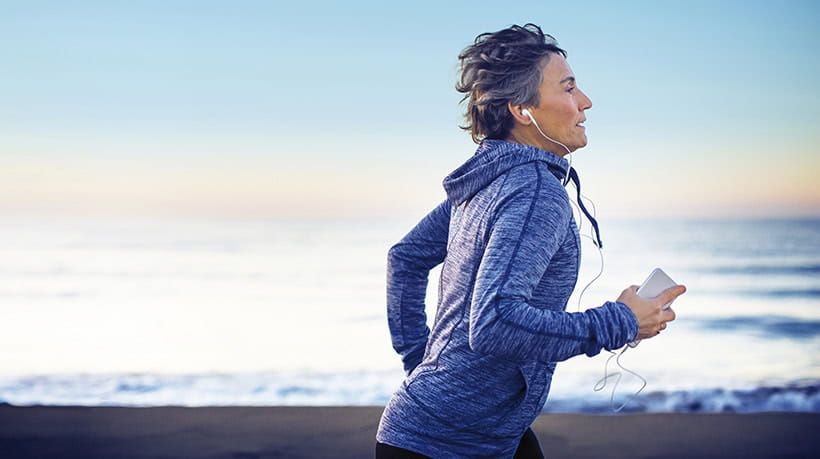Do you really lose 80% of body heat through your head?
We find out if this saying is true, and whether you should be wearing a hat in cold weather.

We find out if this saying is true, and whether you should be wearing a hat in cold weather.

We've all heard it, but do you really lose 80% of body heat through your head?
Your mother’s constant entreaties to wear a hat in cold weather seemed to make a certain sense because, as we all knew, some huge percentage of your body heat escaped through your head, a bit like the steam rising from a rapidly cooling cup of tea. Except that it’s not really true.
This old wives’ tale apparently has its roots in a 1970s US army survival guide, which took the information from military experiments in the 1950s. In those experiments, recruits were wrapped up in Arctic survival suits with only their heads left exposed.
No surprise then, when the scientists discovered that it was their heads that were leaking most of their body heat. There was simply nowhere else it could have come from.
In fact, our heads lose heat at about the same rate as other parts of the body. Researchers discovered this in the early 2000s when they convinced volunteers to plunge into cold water dressed either in a swimsuit or insulated clothing, and with their head either submerged or out.
"They calculated that there was only an 11% increase in heat loss when the head was exposed as well as the body," explains Dr Mark Waldron, physiology lecturer at Swansea University.
So now we know that only around 10% of body heat is lost through our heads, does that mean we don’t need to bother about a hat in cold weather?
No, says thermal physiology specialist Professor George Havenith at Loughborough University.
"If you are fully dressed and your head is exposed, then you are losing most of the heat from your head, so it makes sense to insulate it."
So even though our head doesn’t lose any more heat than the rest of us, it is more sensitive to changes in temperature. So we actually feel colder with an uncovered head.
Prof Havenith even suspects that the British reluctance to wear a hat may in part explain why mortality rises when the mercury drops.
"If you go to zero degrees you see very little impact on mortality in Scandinavia, where, unlike in the UK, you will see young children in hats even at 10C. I do think there’s a link to mortality rates."
Why? Blood pressure rises when you’re cold (because blood vessels constrict), and in the frail that might be enough to trigger a heart attack or stroke, or so the theory goes.
So your mother was right about that hat after all – just not for the reasons she thought.
Over a career spanning 30 years and counting, Rachel Carlyle has written features on news, health, family, education - and everything in between - for national newspapers and magazines. She’s Saga Magazine’s contributing editor and has also ghostwritten two bestselling health and lifestyle books for Penguin.
View author page

Click below for your chance to admire the starry skies over the Canaries on board Spirit of Discovery on a cruise worth £4,240pp.

Health insurance for people over 50 that provides a quicker route to diagnosis and planned medical treatment in a private facility.
Underwritten by Bupa Insurance Limited.

Here’s how to spot the symptoms of heat disease and reduce your danger.

Strong calves for a strong mind: how they support our circulation and brain health, with easy moves to strengthen yours at home.


Our GP Dr Mark Porter explains what can cause itchy skin, which is a common problem as we get older.

The benefits of heat and cold therapy, and how Nordic bathing won over our nervous writer.

As the cost of weight-loss injections rise, what are the alternatives? Experts offer advice on the best and safest ways to shed pounds.

Worried you’ve morphed into Victor Meldrew? Find out how to battle that bad mood, and what to do if you’re stuck with a grouchy loved one.

The NHS winter vaccination campaign kicks off next week. Here’s the lowdown on what you need to book.

Pilates for back pain – what to do if you are suffering, and five gentle exercises that could help.

Dizziness or vertigo: a sensation of spinning, can stop us doing everyday things for fear of falling. Try these tips to stop feeling dizzy


You don’t have to put up with bladder leaks. We try out the latest pelvic floor gadgets for men and women.

Cataracts are a normal part of ageing. Learn how to spot the signs – and when it’s time to consider surgery.